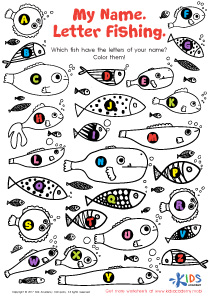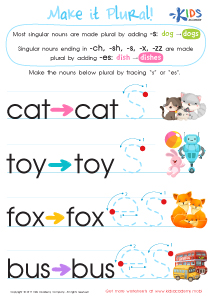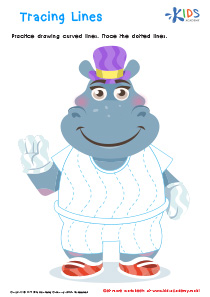Listening skills Easy Phonics Worksheets for Ages 3-9
3 filtered results
-
From - To
Discover our engaging "Listening Skills Easy Phonics Worksheets" designed for children ages 3 to 9! These interactive worksheets help young learners develop essential listening skills while making phonics fun and accessible. With vibrant illustrations and age-appropriate activities, kids will enjoy practicing sounds, recognizing letters, and improving their auditory discrimination. Our worksheets promote early literacy by fostering a love for learning through playful exercises. Perfect for both classroom settings and home practice, these resources support the development of critical skills that lay a strong foundation for reading. Enhance your child's educational journey today with our delightful phonics and listening activities!
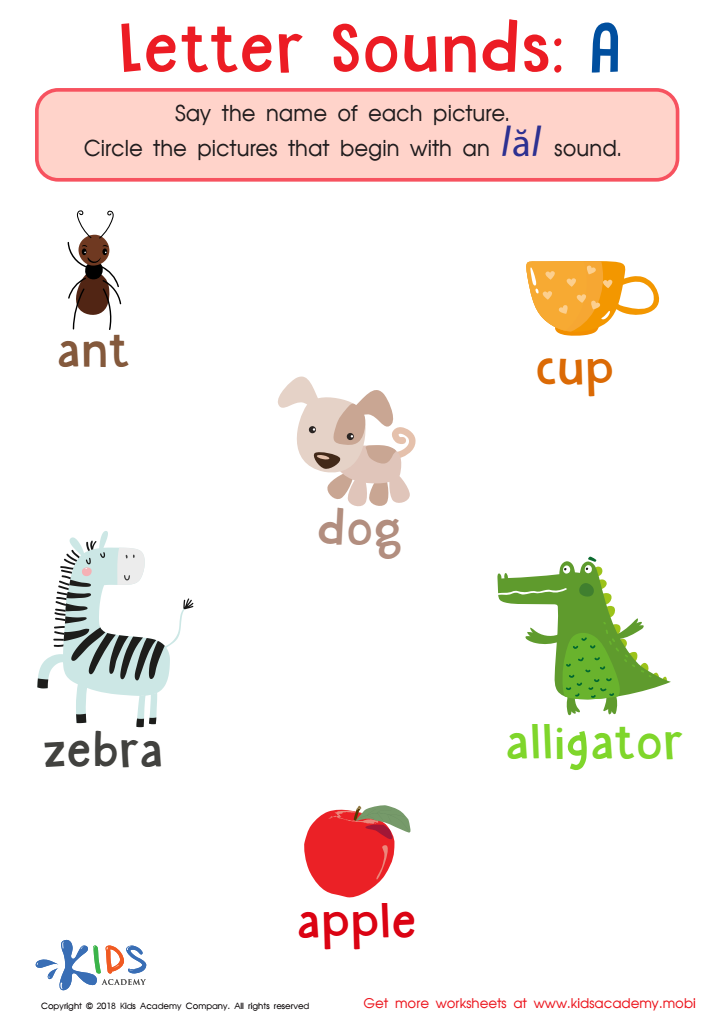

Letter A Sounds Worksheet
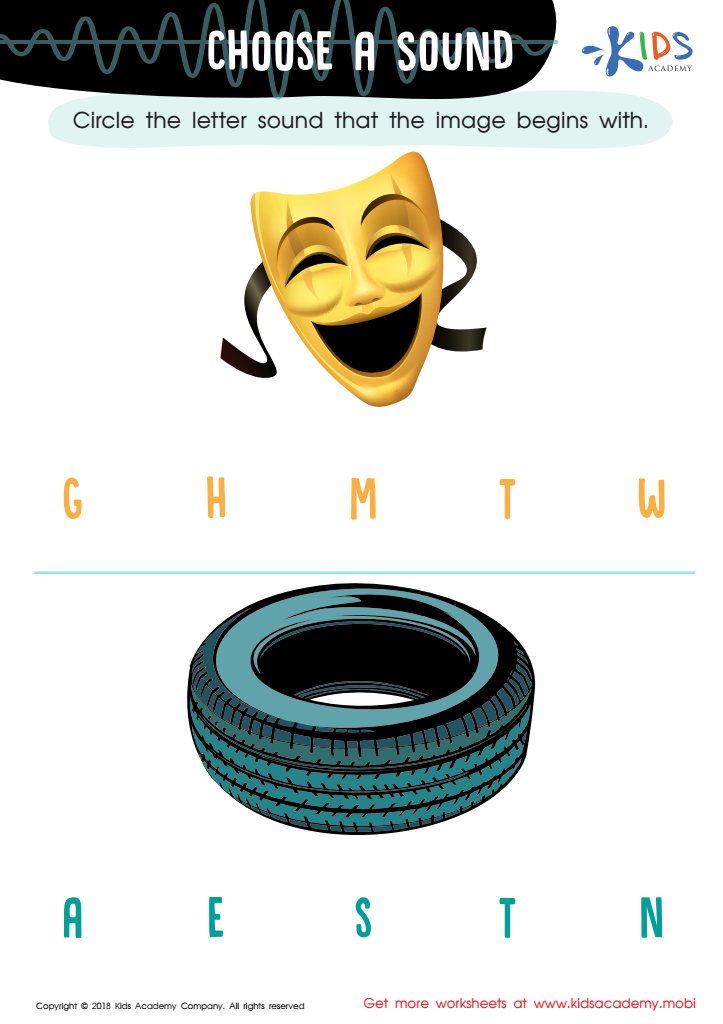

Choose a Sound Worksheet
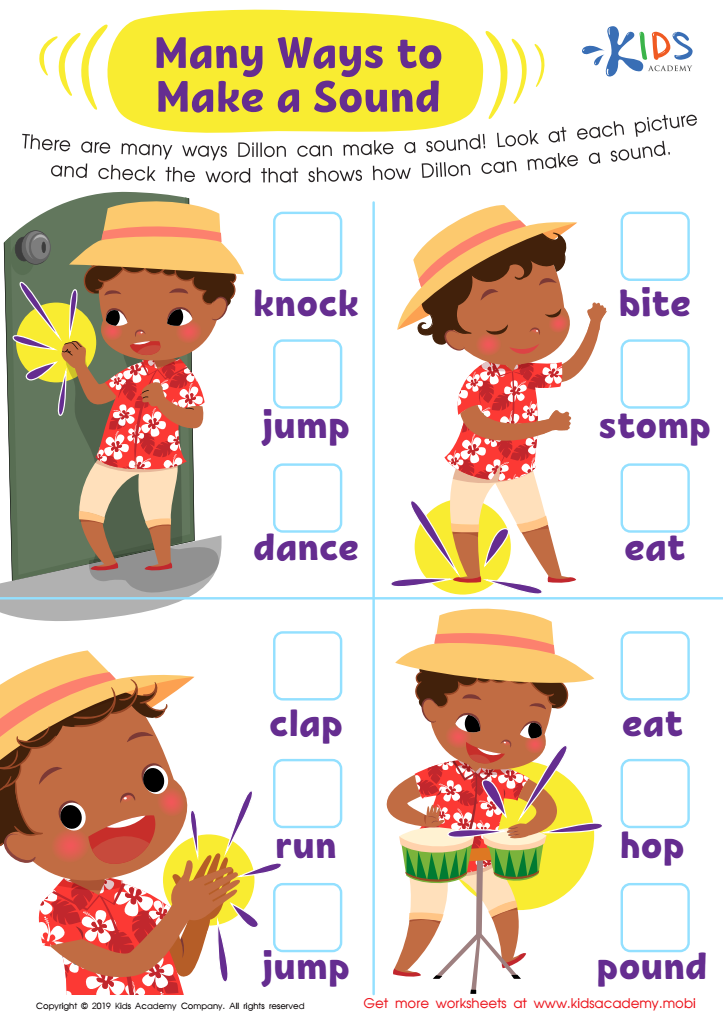

Many Ways to Make a Sound Worksheet
Listening skills are fundamental for young children's overall development, making them crucial for both parents and teachers to nurture. For children ages 3-9, effective listening lays the groundwork for phonics and early reading success. By focusing on "Easy Phonics," educators and parents can create engaging, interactive learning environments that enhance children's attention spans and language comprehension.
When children develop strong listening skills, they become better at decoding sounds, recognizing letters, and understanding word patterns, which are essential components of reading. Phonics programs introduced at an early age often incorporate rhymes, songs, and stories, all of which require attentive listening. This engagement further encourages vocabulary expansion and greater verbal skills.
Moreover, listening skills foster social and emotional development. When children practice listening attentively to instructions or to their peers, they learn patience, empathy, and cooperation. These social skills are integral as they prepare for future academic and life challenges.
By investing time in activities that boost listening and phonics skills, parents and teachers equip children with essential tools for learning and communication, ultimately setting a strong foundation for their lifelong academic journey. Prioritizing this development also enriches the child’s confidence and enthusiasm for learning, which leads to more positive educational experiences.
 Assign to My Students
Assign to My Students











